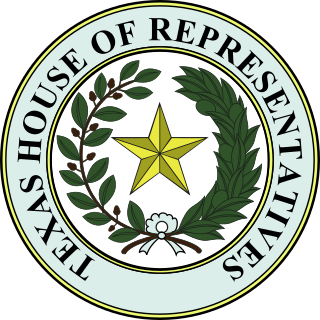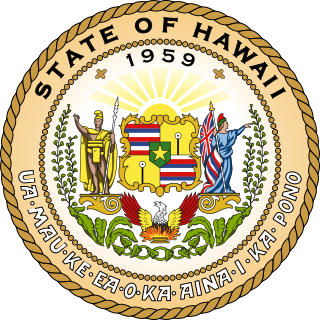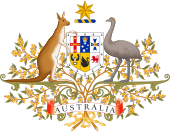
In parliamentary procedure, a point of order occurs when someone draws attention to a rules violation in a meeting of a deliberative assembly.

A committee or commission is a body of one or more persons subordinate to a deliberative assembly. A committee is not itself considered to be a form of assembly. Usually, the assembly sends matters into a committee as a way to explore them more fully than would be possible if the assembly itself were considering them. Committees may have different functions and their types of work differ depending on the type of the organization and its needs.

A quorum is the minimum number of members of a group necessary to constitute the group at a meeting. In a deliberative assembly, a quorum is necessary to conduct the business of that group. According to Robert's Rules of Order Newly Revised, the "requirement for a quorum is protection against totally unrepresentative action in the name of the body by an unduly small number of persons." In contrast, a plenum is a meeting of the full body. A body, or a meeting or vote of it, is quorate if a quorum is present.

The speaker of the House of Representatives is the presiding officer of the Australian House of Representatives, the lower chamber within the Parliament of Australia. The counterpart in the upper house is the president of the Senate. The office of the speakership was established in 1901 by section 35 of the Constitution of Australia. The primary responsibilities of the office is to oversee house debates, determine which members may speak, maintain order and the parliamentary and ministerial codes of conduct during sessions and uphold all rules and standing orders. The current speaker of the House of Representatives is Milton Dick, who was elected on 26 July 2022.

The Texas House of Representatives is the lower house of the bicameral Texas Legislature. It consists of 150 members who are elected from single-member districts for two-year terms. There are no term limits. The House meets at the State Capitol in Austin.

The Hawaii House of Representatives is the lower house of the Hawaii State Legislature. Pursuant to Article III, Section 3 of the Constitution of Hawaii, amended during the 1978 constitutional convention, the House of Representatives consists of 51 members representing an equal number of districts across the islands. It is led by the Speaker of the House elected from the membership of the House, with majority and minority leaders elected from their party's respective caucuses. The current Speaker of the House is Scott Saiki.

The United States House Committee on the Budget, commonly known as the House Budget Committee, is a standing committee of the United States House of Representatives. Its responsibilities include legislative oversight of the federal budget process, reviewing all bills and resolutions on the budget, and monitoring agencies and programs funded outside of the budgetary process. The committee briefly operated as a select committee in 1919 and 1921, during the 66th and 67th United States Congresses, before being made a standing committee in 1974.

The Missouri House of Representatives is the lower chamber of the Missouri General Assembly. It has 163 members, representing districts with an average size of 37,000 residents. House members are elected for two-year terms during general elections held in even-numbered years.
A committee of the whole is a meeting of a legislative or deliberative assembly using procedural rules that are based on those of a committee, except that in this case the committee includes all members of the assembly. As with other (standing) committees, the activities of a committee of the whole are limited to considering and making recommendations on matters that the assembly has referred to it; it cannot take up other matters or vote directly on the assembly's business. The purpose of a committee of the whole is to relax the usual limits on debate, allowing a more open exchange of views without the urgency of a final vote. Debates in a committee of the whole may be recorded but are often excluded from the assembly's minutes. After debating, the committee submits its conclusions to the assembly and business continues according to the normal rules.
Parliamentary committees of the Australian House of Representatives are groups of Members of Parliament, appointed by the House of Representatives, to undertake certain specified tasks. They comprise government and non-government Members and have considerable powers to undertake work on behalf of the Parliament.
The Education Select Committee is a select committee of the House of Commons in the Parliament of the United Kingdom. The remit of the committee is to examine the expenditure, administration and policy of the Department for Education and any associated public bodies.
The Public Accounts Committee (PAC) is a standing committee of Dáil Éireann, the lower house of the Irish Parliament. It oversees government expenditures to ensure they are effective and honest. It is responsible for examining reports of Comptroller and Auditor General on Departmental expenditure and certain other accounts. It also considers the Comptroller and Auditor General's reports of economy, efficiency, effectiveness evaluation systems, procedures and practices. The PAC has a key role to play in ensuring accountability and transparency in the way Government agencies allocate, spend and manage their finances and in guaranteeing that the taxpayer receives value for money for every euro spent. By the nature of its role as the public spending watchdog, the Committee of Public Accounts is one of the most powerful Oireachtas Committees.
The Committee on the Future Relationship with the European Union, commonly known as the Brexit Select Committee and formerly the Exiting the European Union Select Committee, was a select committee of the British House of Commons that examines matters relating to the United Kingdom's relationship with the European Union after Brexit. Until the department's closure on 31 January 2020, the committee scrutinised the work of the Department for Exiting the European Union, which had been launched by Prime Minister Theresa May in July 2016 following the 'Leave' vote in the UK's referendum on membership of the European Union. It was dissolved on 16 January 2021 in line with the temporary standing order which formed the committee.

Committees of the New Zealand House of Representatives are subsets of the New Zealand House of Representatives which deal with specific tasks delegated to them by the House. The functions of committees include scrutinising draft legislation (bills), conducting inquiries into subjects within their expertise, receiving public comment on matters before them, and overseeing the operation of the public service.

The Standing Committee on Procedure is a committee of the Australian House of Representatives responsible for the practices and procedures of the House of Representatives and its committees. The committee is governed by Standing Order 221 and consists of seven members, four government members and three non-government members. The chair is appointed by the Prime Minister and the deputy chair by the Leader of the Opposition under Standing Order 232.

The Standing Committee on Petitions is a committee of the Australian House of Representatives responsible for the processing of petitions addressed to the House of Representatives. The committee is governed by Standing Order 220 and consists of eight members, five government members and three non-government members. The chair is appointed by the Prime Minister and the deputy chair by the Leader of the Opposition under Standing Order 232.

The Standing Committee on Appropriations and Administration is a committee of the Australian House of Representatives responsible for the funding and operations of the House of Representatives. The committee is governed by Standing Order 222A and consists of nine members, the Speaker as chair, ex officio, four government members and three non-government members. The deputy chair is appointed by the Leader of the Opposition under Standing Order 232.

The Selection Committee is a committee of the Australian House of Representatives responsible for determining the progam of private members business in the House of Representatives. The committee is governed by Standing Order 222 and consists of fourteen members, eight government members and six non-government members. The Speaker is chair of the committee ex officio. The Deputy Speaker can substitute for the Speaker in his absence.

The Standing Committee of Privileges and Members' Interests is a committee of the Australian House of Representatives responsible for the consideration of documents presented to the House of Representatives. The committee is governed by Standing Order 216 and consists of thirteen members, one member nominated by the Leader of the House, another member nominated by the Deputy Leader of the Opposition and eleven other members. The chair is appointed by the Prime Minister and the deputy chair by the Leader of the Opposition under Standing Order 232.










